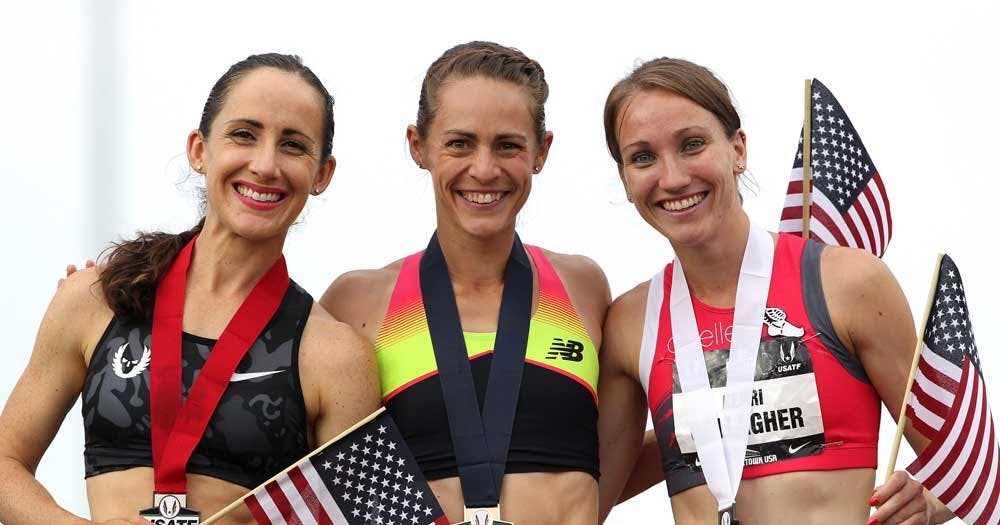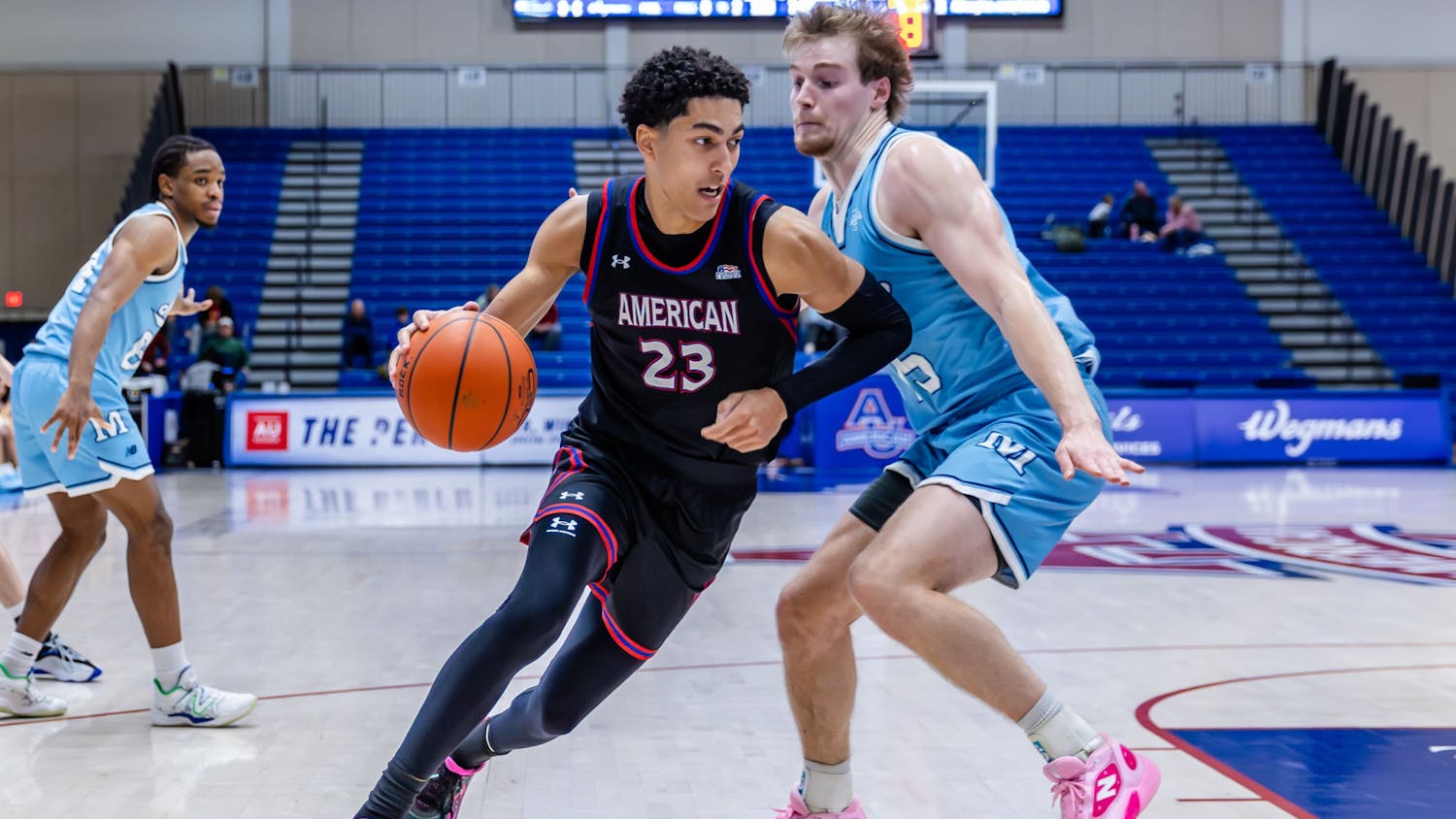In late August, AU track and cross country assistant coach Kerri Gallagher stood at the starting line of the women’s 1500m World Championship semifinal to compete against the best runners around the globe. Gallagher finished eighth with a time of 4:17.63, three spots short of advancing to the finals. Today, she not only spends her days racing around the track in preparation for the Olympic Trials, but she also commits dozens of hours each week to working with the AU men’s and women’s cross country teams. Gallagher caught up with The Eagle to talk about her international experience, running career and the lessons she hopes to pass on to her athletes.
Q: Congratulations on your finish at World. What was that experience like?
A: It was pretty incredible. I didn’t have any idea what to expect. I’ve never raced on that level before, until this summer, so everything was just kind of a whirlwind through the whole summer, so to get there and to be feeling good and feeling like I was ready to complete was just a blessing. I was so happy to be out there, and obviously I would have loved to have made the final because that’s everybody’s goal, but I think making the semi-final and competing there was just a great way to kind of finish that championship season.
Q: So, what’s next?
A: I’m taking a little break now, and then I start training again really for Olympic Trials, and I try to make the Olympic team. There will probably be some road races later in the fall, indoor I may race a little bit, but the main focus will be the outdoor season, so I’ll be doing a lot of strength training, mostly up until about May or June when I start racing again.
Q: What separates the training that you do now from what you did in college?
A: The mileage is much higher, it’s a lot more volume, and it can be much more tailored to my individual needs and my individual race plan versus college where there’s obviously team needs and different races I need to run for whether it be points or relays or whatever that is, and so that was a great way to race in college, but it’s just a different atmosphere now post-collegiately. So all the workouts that I do are specifically for my race coming up versus maybe conference where I might two or three different races, one being my main event and then kind of another one that I might be able to score in, so it’s just more specifically tailored.
Q: And you’re primarily a miler?
A: Yes. 1500 is my focus, almost exclusively. I do run 800 as well, but 1500 is my main event.
Q: Do you train for that all year long?
A: Pretty much. The type of training is different during different times of the year, so the fall traditionally is a high-mileage time of year. My season typically ends, the past two years anyway, had ended in July, so this is a much longer season for me. So I’m taking my break these two weeks versus where I would have in July, and I would be pretty far into my mileage at this point, so just a little bit different timing, but it will be the same principle: a lot of base work, a lot of strength and keep doing that through the winter, with a little bit more interval training [and] a few indoor races. It will be less mileage, more intensity in the spring, so that’s kind of the general setup.
Q: Coaching and running at this high level…what does a typical day look like for you?
A: It’s pretty much all day at AU. I spend a lot of time at American depending on when I’ll do my run and what kind of day it is. So if it’s a workout day, I’ll come into the office and do some work and kind of hang out and coaching isn’t your traditional desk job, so I’m not really sitting at my desk all day. I’m moving around, I’m pretty active. I will have done a morning run at home, come into work, and then around 3 o’clock, we have practice, so I’ll do my workout, and then that might be the end of the day for me. It works well because they kind of compliment each other, the training and the work, so luckily I don’t have to sacrifice my needs at work for running and vice versa.
Q: So you’re able to train with the team? You do your practices with them?
A: I’ll practice at the same time. Sometimes I’ll come in and out of intervals with the girls or sometimes Coach [Matt Centrowitz] will rope some of the guys into helping me out a little bit so my timing is a little different, their season gets a little more intense a little earlier than mine does so sometimes it works, sometimes it doesn’t, but as much as possible, I do try to workout with them, but always alongside them, at the same time.
Q: What lessons have you taken from your own running that you are able to pass on to them with your experience?
A: Patience. You have to be patient with yourself and kind of with the process. Kind of that progressive approach to training and to racing I really started to appreciate even more especially post collegiately, so hopefully I’m really able to kind of convey that to them through mistakes I have made in my own racing. I still have plenty of bad races to go along with my good ones, even at this stage, 11 years later, running, you still find ways to make mistakes and learn from them, so hopefully I’m bringing those mistakes that I’ve made to the girls and the guys to kind of learn from.
sscovel@theeagleonline.com





